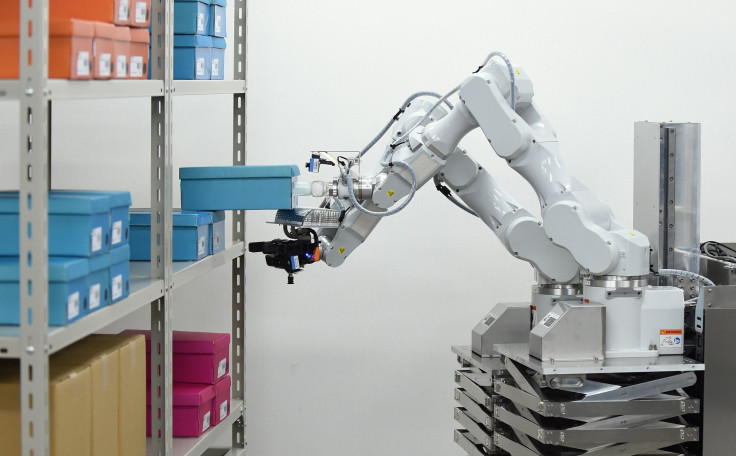Robots May Take Over Nearly 375 Million Jobs By 2030

A significant number of jobs could be completed by robots as early as 2030, according to a new report published Tuesday by the McKinsey Global Institute. The transition into a heavily automated workplace wouldn't arrive right away, but it may affect up to 375 million workers globally.
The workforce has already begun to accommodate technological advancements, with robotics being no exception to this. Statistics have proven the potential benefits to automated workers, including its positive effects on the global economy. McKinsey suggested that physical laborers are most at risk of losing their positions with the rise of automation, which includes food preppers and machine operators, among other similar workers.
Individuals that work in data collection and processing would also likely need to be wary of losing their job to a robot.
"We estimate that as many as 375 million workers globally (14 percent of the global workforce) will likely need to transition to new occupational categories and learn new skills, in the event of rapid automation adoption," McKinsey's report said. "If their transition to new jobs is slow, unemployment could rise and dampen wage growth."
Jobs that are less likely to receive the automation treatment include roles that involve managing people, having a particular expertise or positions where some level of social interaction is a necessity because machines wouldn't be able to match the skills needed to work in these areas. Areas of unpredictable work like plumbing, gardening and caretaking would also experience less automation.
The report's results varied by country as it examined 46 nations and more than 800 positions. It depicted the slate of tasks that workers complete daily and their hourly wage rate. McKinsey also utilized the midpoint of 15 percent of jobs that are currently automated to determine its findings.
"We estimate that the introduction of the personal computer, for instance, has enabled the creation of 15.8 million net new jobs in the United States since 1980, even after accounting for jobs displaced," the report added. "About 90 percent of these are in occupations that use the PC in other industries, such as call center representatives, financial analysts, and inventory managers."
Technology has aided in the creation of more jobs in the last 140 years, according to 2015 census results in England and Wales. The data even claimed that technology had established more positions than it had destroyed. While the job-destroying aspect of technology has been more noted across the board, robotics has taken over positions less suited for a human that prove to be dull or dangerous.
"The dominant trend is of contracting employment in agriculture and manufacturing being more than offset by rapid growth in the caring, creative, technology and business services sectors," the study's authors wrote in a report for Deloitte. "Machines will take on more repetitive and laborious tasks, but seem no closer to eliminating the need for human labor than at any time in the last 150 years."
© Copyright IBTimes 2024. All rights reserved.






















